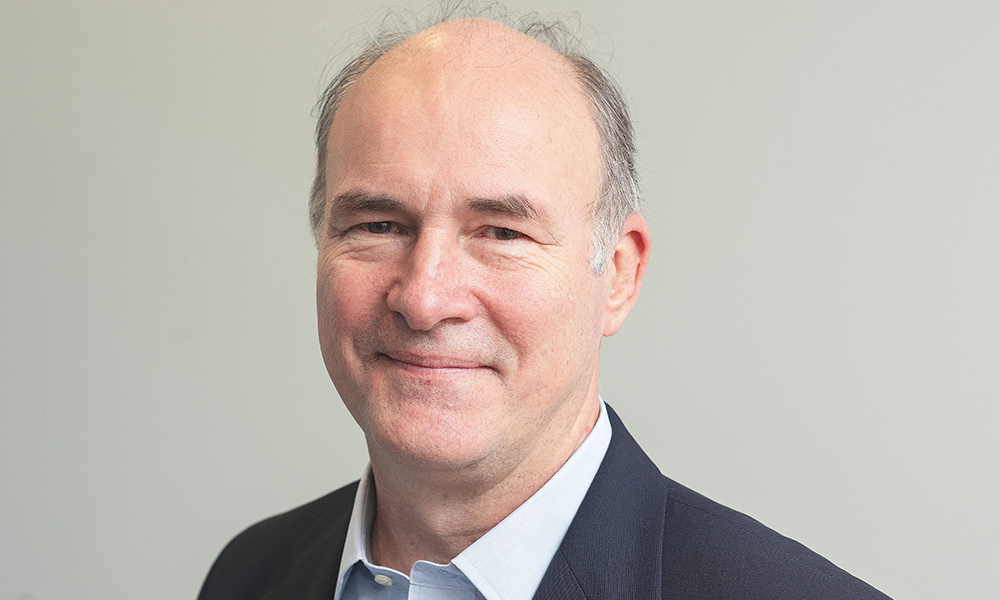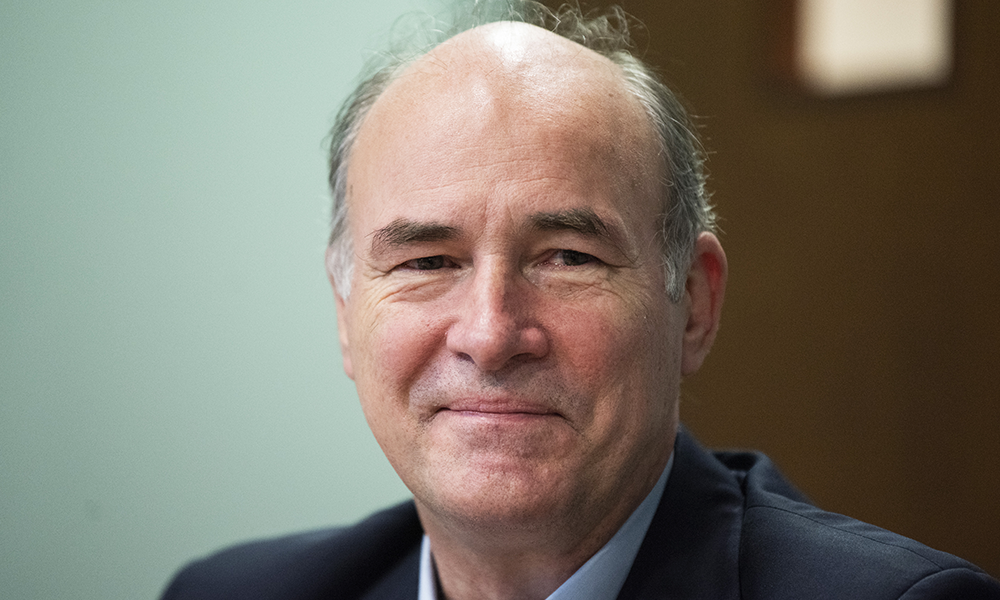Docklands Sailing And Watersports contest raises money for the East End Community Foundation
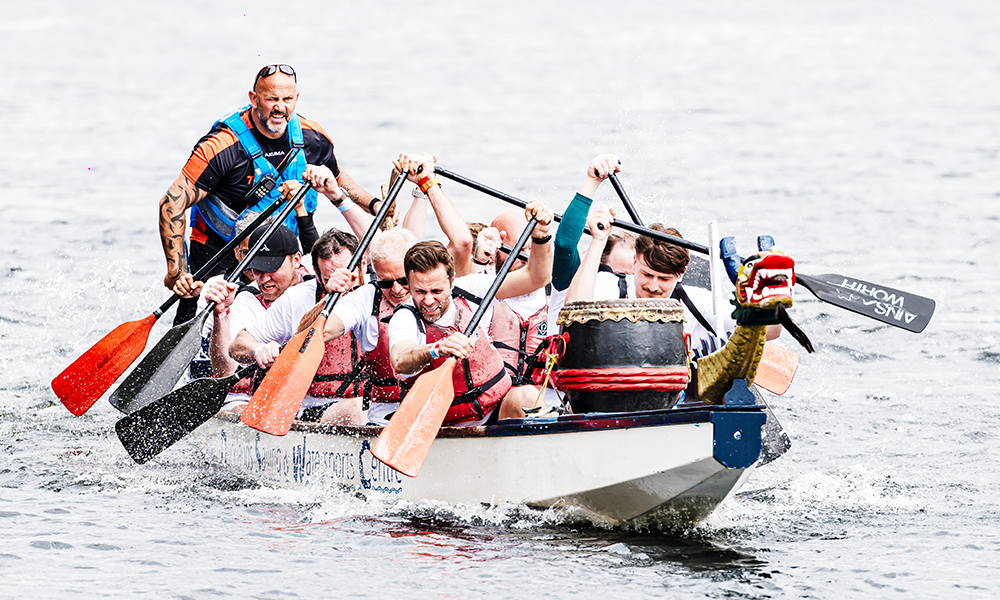
Subscribe to our free Wharf Whispers newsletter here
The developer behind Consort Place on the Isle Of Dogs hosted an event this month at the Docklands Sailing And Watersports Centre to raise much-needed funds for local charities.
Far East Consortium (FEC) – which recently welcomed the first residents to Aspen, the tower at the heart of its scheme – organised a Dragon Boat Festival on the waters of Millwall Outer Dock this month.
Teams from the developer and its partners – including Knight Frank, NHBC, Hawkins Brown, Dorsett Hospitality International, The Media People, Dex Construction, TP Bennett, Kohler, McBains, JRL, HTA and BB7 – did battle on the water with paddles and sweat, for glory, medals and a trophy.
Consultancy firm WSP won the day, with its team – Stroke Of Genius – topping the podium. All proceeds from the event will go to the East End Community Foundation (EECF), which gives grants to charities across the local area.

grants for good causes
“FEC is a patron of our Life Chances Campaign, which means it has committed £60,000 so far and is hopefully going to come on board to support this for the next three years,” said EECF campaign director Sally Bateson.
“It’s all about creating lasting change.
“We’ve been looking to raise more money so we can give bigger grants over longer periods of time to support the grassroots organisations we work with who don’t have the resources or profile to find the funds themselves.”
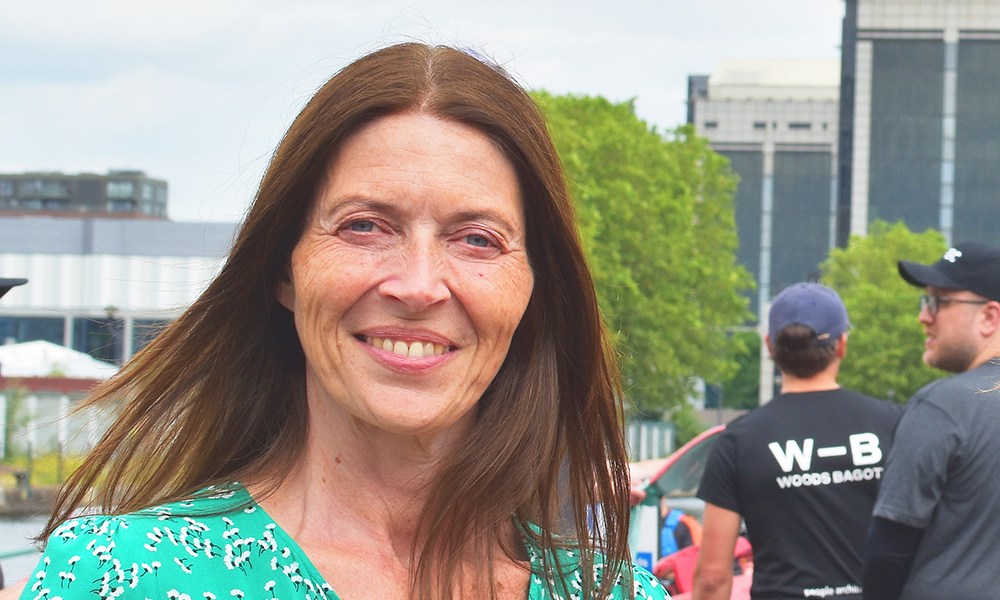
where the Far East Consortium money goes
EECF CEO Tracy Walsh added: “We focus on youth unemployment and wellbeing, pension poverty and isolation and digital inequality – we put a lot of money into these areas.
“For example, with unemployment, young people might feel like big organisations aren’t for them but they will go to a less glamorous youth club next door.
“We’re funding a person to tackle the problem in those settings.
“We are also providing money for a lot of holiday programs to aid wellbeing – giving young people food, physical activity and safe places to be.
“With pension poverty, we’ve invested about £80,000 to train front line workers to help older people claim benefits that they are entitled to.
“It’s been nine months and we’ve already seen £400,000 of money go to people who are eligible for it.
“There’s millions of pounds of unclaimed Pension Credits and we thought we should do somthing to help people get it.
“On digital equality, we’re now working in primary schools to help connect low income families.
“They get 12 months free broadband, a laptop and training on how to stay safe online and help their kids with homework.
“We’ve connected more than 600 so far and we want to boost that figure by 200 by the end of the year.
“In Tower Hamlets we were just shocked by how many homes don’t have any digital connection – it’s around 50,000.
“We’ve got the highest level of child poverty in the UK here and the highest level of pension poverty. If organisations all do their own thing, the impact can be diluted.
“What we’re saying with Life Chances is that if we all work together, it’s easier to make a difference and also easier for the charities, who only have to apply to one funder rather than dealing with lots of different ones.”
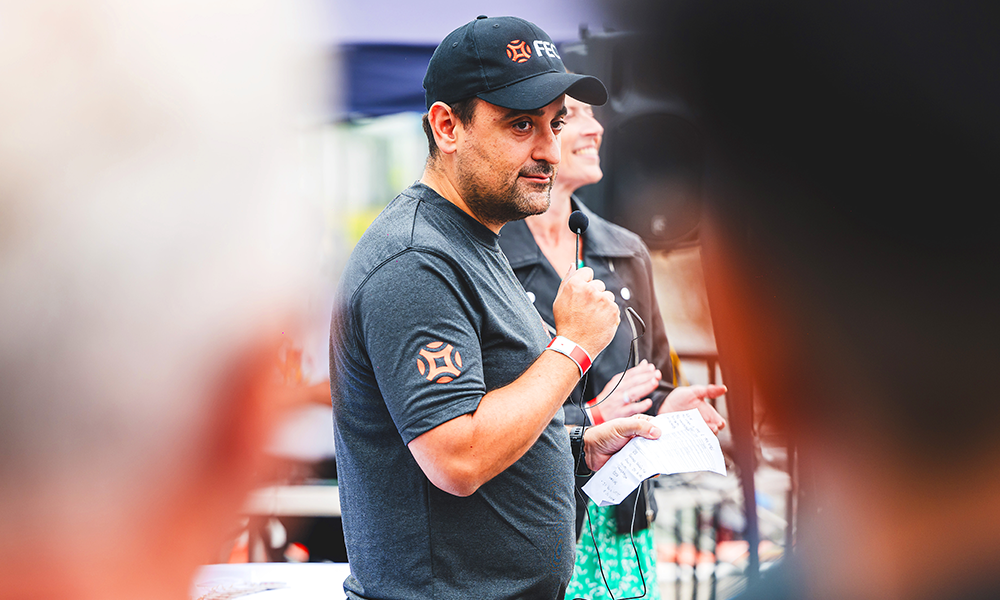
Far East Consortium: a question of values
Far East Consortium development director Bruno Almeida Santos said the company’s involvement with the EECF and donating to its Life Chances Campaign was really about the business’ core values.
He said: “We’ve been trying to arrange this event for three years, so we’re very pleased that it’s happened and that we could attract these organisations to see the work of the foundation.
“Hopefully we can make this a tradition, especially as it’s a dragon boat race and we’re a Hong Kong developer.
“It’s very important for us as a company to support the EECF. I think some organisations do things as a tick-box exercise but we want to do way more than that.
“This isn’t about our obligations to an S106 agreement, but actually contributing to the foundation, including the joy of losing to the children who were racing as part of one of the teams.
“You know, when you see the smiles on their faces, that you’re making a difference because it’s a day they will never forget.
“Hosting it at the Docklands Sailing And Watersports Centre was a case of the stars aligning.
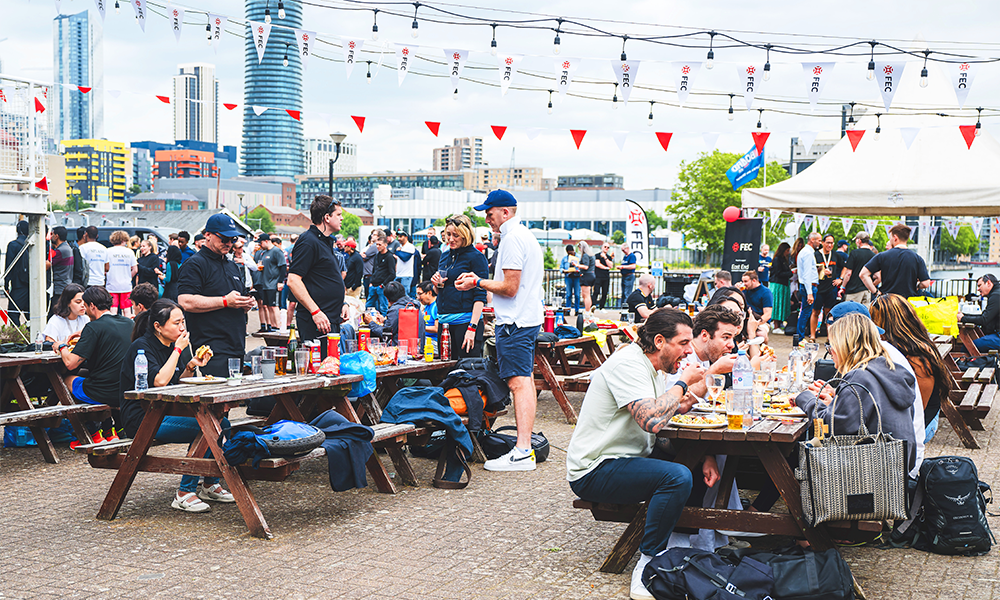
“It’s one of the best settings to view Aspen – our flagship development in London – from and to bring everyone together here.
“It’s been under construction for five years and it’s been a challenging scheme with the pandemic, but we’ve managed to crunch the numbers and overcome the issues.
“I think a lot of that has actually been on the human side, with people working together to resolve the problems.
“It’s been about communication and working together and this is about celebrating that as well as supporting those around us.
“Actually being on the ground with the EECF means you get a completely different experience – you get to see the outcome of that support and we’re really, really happy about that.
“We’ll have to do the race again with even more people.”
In addition to hosting a raffle, all proceeds raised on the day, including ticket sales have gone towards the foundation’s work.
“The day also provided plenty of scope for networking and team building for participants.
“It felt really great,” said Lovisa Claesson, graduate consultant at WSP and a member of winning team “Stroke Of Genius”.
“To be honest we all worked within different areas of the business, so didn’t really know each other before the contest. But we got the women in the front and the men following.”
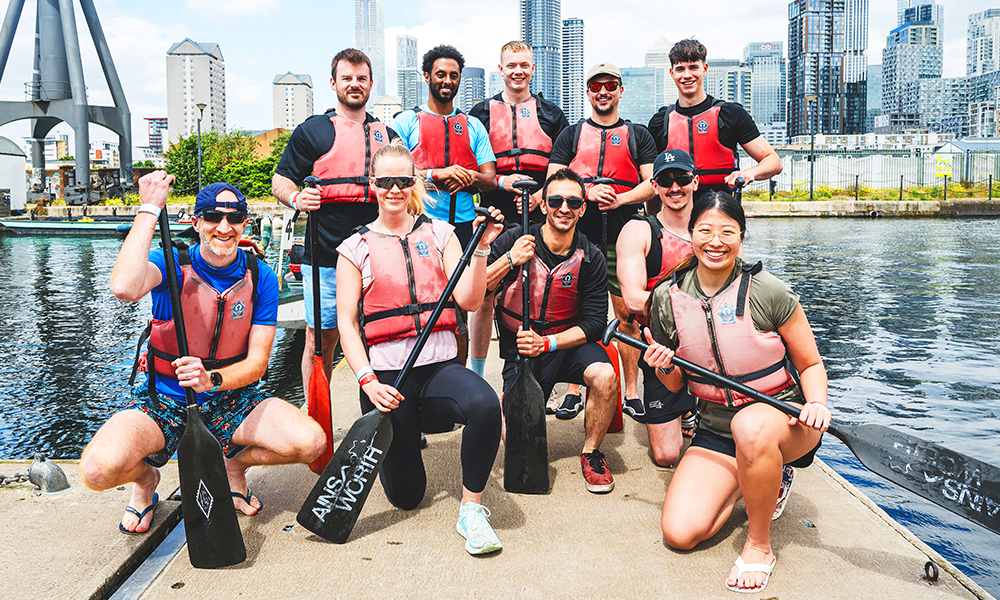
key details: Far East Consortium’s Aspen At Consort Place
Homes at Aspen At Consort Place by Far East Consortium – just off Marsh Wall – are available now. Prices start at £550,000.
The EECF is also based on the Isle Of Dogs and offers a wide range of ways for companies to get involved with good causes locally – including supporting its Life Chances campaign.
Find out more about the development here
Find our more about the work of EECF here
Read more: East Bank director Tamsin Ace on collaboration in Stratford
Read Wharf Life’s e-edition here
Subscribe to our free Wharf Whispers newsletter here
- Jon Massey is co-founder and editorial director of Wharf Life and writes about a wide range of subjects in Canary Wharf, Docklands and east London - contact via jon.massey@wharf-life.com




